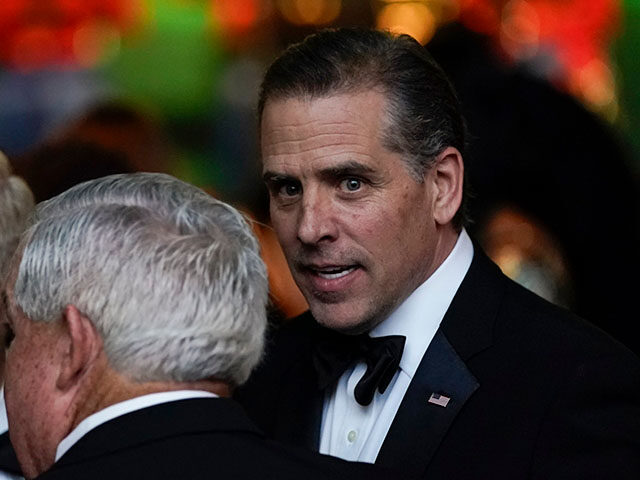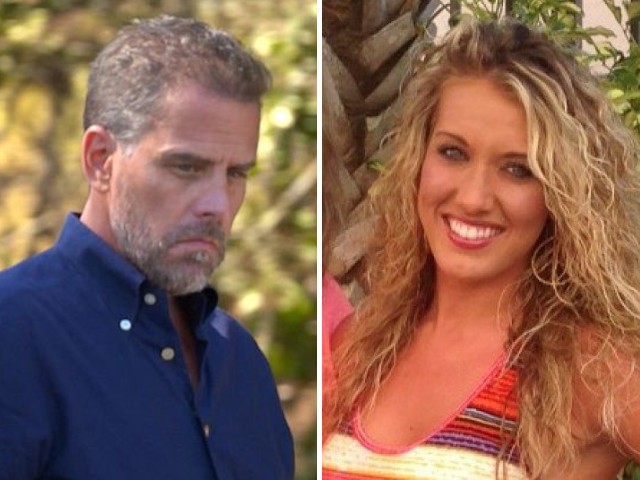Hunter Biden’s finalized paternity agreement with Lunden Roberts specifies the use of the first son’s paintings as a means to pay at least some of his child support.
Hunter Biden’s paternity agreement states:
Defendant additionally agrees that he shall assign to the child [redacted] of his paintings over the next [redacted] which shall vary in size with a minimum size of 24×24. The child shall select the painting which shall either be sent to the child or sent to a gallery designated by Lunden Roberts. The net proceeds of any sales of paintings shall be wired to an account designated by Lunden Roberts.
The art industry is known for shady business transactions. A Senate subcommittee report detailed in 2020 how the art market serves as a vehicle for money laundering:
The art industry is considered the largest, legal unregulated industry in the United States. Unlike financial institutions, the art industry is not subject to Bank Secrecy Act’s (“BSA”) requirements, which mandate detailed procedures to prevent money laundering and to verify a customer’s identity. While the BSA does not apply to art transactions by art dealers and auction houses, sanctions do. No U.S. person or entity is allowed to do business with a sanctioned individual or entity.
…
While the art market is not regulated by the BSA, it is governed by unwritten rules. A large number of art sales happen through intermediaries referred to as “art advisors” who can represent both purchasers and sellers. In a typical transaction, a purchaser may not ask who owns the piece of art they are purchasing; the seller may not ask for whom it is being purchased or the origin of the money. And in general an art advisor would be reluctant to reveal the identity of their client for fear of being cut out of the deal and losing the business.
…
Because the art industry is not subject to BSA requirements, when a piece of art is sold, there is no legal requirement for the selling party to confirm the identity of the buyer or that the buyer is not laundering money through the purchase. While the four biggest auction houses have voluntary anti-money laundering (“AML”) programs, the employees who facilitated art purchases in the Subcommittee’s case study said they never asked the art advisor the identity of his client. Instead, the auction houses considered the art advisor the principal purchaser and performed any due diligence on the art advisor, even when it was well-known that the ultimate owner was someone else. With regard to the funds used to purchase art, the auction houses told the Subcommittee they rely on financial institutions to ensure the integrity of the funds, even though the auction houses interact directly with the buyer. But these voluntary AML policies are just for sales through the auction houses. As stated above, the majority of art sales are private transactions. A private dealer interviewed by the Subcommittee stated she had no written AML policies, tries to work with people she knows and trusts, looks for red flags, and relies on her gut. She also explained that her practices have significantly changed over the years and that she also relies on advice from AML lawyers.
Secrecy, anonymity, and a lack of regulation create an environment ripe for laundering money and evading sanctions.
Adam Thompson, a prominent artist from Miami, told Breitbart News that Hunter Biden is trying to cash in on his infamous, scandal-ridden history by using an unregulated market. Without such notoriety in a shady industry, Hunter Biden’s art would be worth nearly nothing and his daughter would receive a raw deal.
“Scandal on this level is great for the value of an artist’s work,” he said. “But if a regular person were to sell Hunter Biden’s form of art, they would never be able to command the outrageous dollar amounts the pieces generated without the Biden last name.”
In total, Hunter Biden anonymously sold about 12 paintings for less than $500,000, the Washington Post reported. It is unclear how much money the art generated at the sale, but estimates suggest he earned at least five times more than the average American artist — all while being a novice painter.
Follow Wendell Husebø on Twitter @WendellHusebø. He is the author of Politics of Slave Morality.


COMMENTS
Please let us know if you're having issues with commenting.